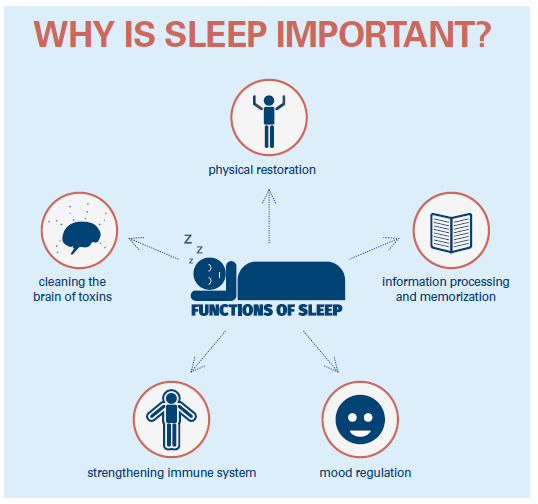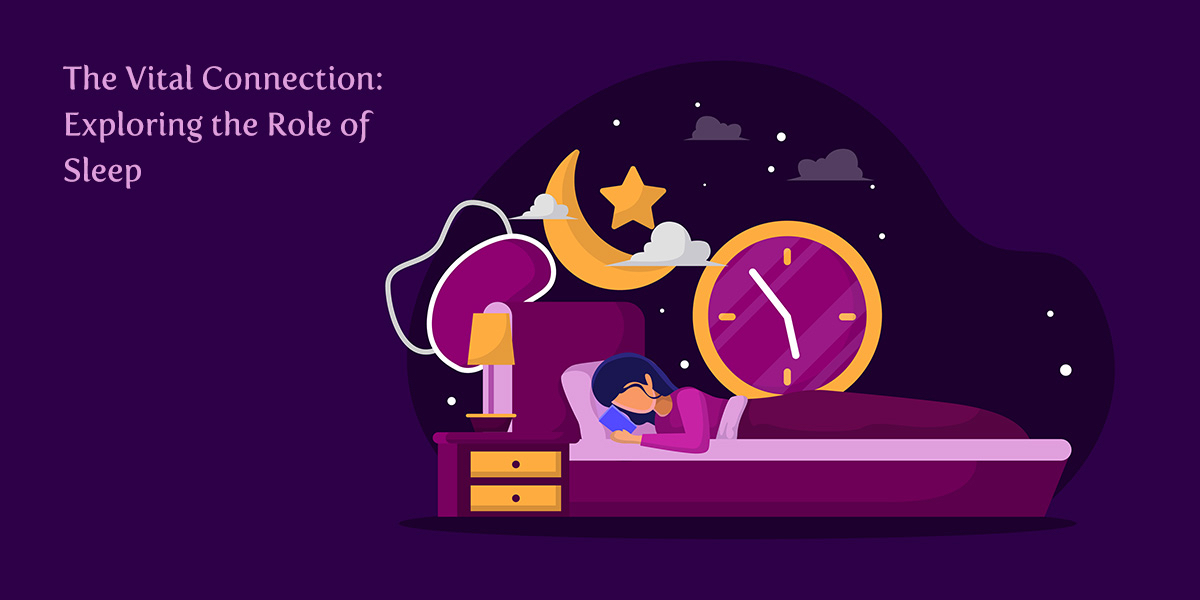Sleep is more than just a time for rest—it’s a vital process that rejuvenates the body and mind, directly impacting overall health. In today’s fast-paced world, prioritizing quality sleep often takes a backseat, but its benefits are far-reaching. Adequate rest plays a key role in physical recovery, cognitive performance, emotional balance, and disease prevention.
This blog will delve into the importance of sleep for well-being, explore its effects on mental and physical health, and provide actionable tips to improve your sleep quality. Discover why prioritizing rest is one of the most impactful steps toward leading a healthier life.
1. Why Sleep Is Crucial for Physical Health
Sleep is the foundation of physical well-being. During deep sleep stages, the body undergoes essential repair and recovery processes. Muscle tissues rebuild, and the immune system strengthens to protect against illnesses. Studies have linked adequate rest to improved heart health, reduced inflammation, and better metabolic function.

Lack of sleep, however, disrupts these critical processes, increasing the risk of conditions like hypertension, diabetes, and obesity. Insufficient rest can also affect hormone regulation, leading to imbalances in hunger-related hormones like ghrelin and leptin, which may cause weight gain.
Prioritizing seven to nine hours of sleep daily supports optimal physical health, allowing your body to function at its best.
2. The Connection Between Sleep and Mental Well-Being
Your mental health and sleep are intricately connected. Restful sleep supports brain function, including memory consolidation, problem-solving, and creativity. It’s during sleep that your brain processes and organizes information gathered throughout the day.
Chronic sleep deprivation, on the other hand, can impair concentration, decision-making, and emotional regulation. Poor sleep is also linked to increased anxiety, depression, and mood swings. It creates a vicious cycle where stress and mental health challenges further disrupt rest, compounding the problem.
Improving your sleep hygiene—such as maintaining a consistent bedtime, limiting screen time, and creating a relaxing bedtime routine—can enhance your mental clarity and resilience.
3. Sleep’s Role in Energy Levels and Productivity
Ever noticed how a good night’s sleep leaves you feeling energized and ready to tackle the day? Sleep is essential for restoring your energy levels. During rest, your body replenishes glycogen stores, ensuring you have the stamina to perform daily tasks and exercise effectively.
Lack of rest, however, can lead to fatigue, irritability, and decreased motivation. Sleep-deprived individuals often struggle with productivity and are more prone to errors. Whether you’re working, studying, or pursuing hobbies, quality sleep boosts focus, creativity, and efficiency.
Incorporating habits like consistent wake-up times and avoiding caffeine late in the day can optimize your sleep and improve your daily energy levels.
4. How Sleep Supports Immune Function and Disease Prevention
Quality sleep is your immune system’s best ally. During rest, the body produces and releases cytokines—proteins crucial for fighting infection, inflammation, and stress. Chronic sleep deprivation weakens the immune response, leaving you vulnerable to colds, flu, and other infections.

Furthermore, poor sleep is associated with a higher risk of chronic diseases such as heart disease, stroke, and cancer. By ensuring adequate rest, you allow your immune system to function optimally, reducing the likelihood of illness and improving your body’s ability to recover.
Simple adjustments, like keeping your sleep environment cool and dark, can enhance your rest and support a robust immune defense.
5. Tips for Improving Sleep Quality
Transforming your sleep habits doesn’t have to be overwhelming. Here are practical steps to enhance the quality and duration of your rest:
- Stick to a Schedule: Go to bed and wake up at the same time every day, even on weekends. Consistency helps regulate your internal clock.
- Create a Sleep-Friendly Environment: Ensure your bedroom is dark, quiet, and cool. Consider blackout curtains and a white noise machine for optimal comfort.
- Limit Screen Time Before Bed: Blue light from devices interferes with melatonin production, making it harder to fall asleep. Power down screens an hour before bed.
- Avoid Stimulants Late in the Day: Reduce caffeine and nicotine intake in the afternoon and evening. Opt for calming herbal teas instead.
- Practice Relaxation Techniques: Engage in activities like meditation, deep breathing, or reading a book to unwind before sleep.

By adopting these habits, you can create a nighttime routine that promotes better sleep and, in turn, a healthier lifestyle.
6. Recognizing Signs of Sleep Disorders
Not all sleep issues stem from poor habits. Sometimes, underlying sleep disorders like insomnia, sleep apnea, or restless leg syndrome are to blame. Recognizing the signs of these conditions is crucial for seeking timely treatment.
Common symptoms include excessive daytime sleepiness, loud snoring, difficulty falling or staying asleep, and frequent waking during the night. If you experience these issues regularly, consult a healthcare provider for a proper diagnosis and tailored solutions.
Treating sleep disorders can dramatically improve your overall health, energy levels, and quality of life.
7. The Long-Term Benefits of Prioritizing Sleep

Making sleep a priority isn’t just about feeling rested—it’s an investment in your future. Consistent, quality rest lowers the risk of chronic illnesses, enhances longevity, and improves mental and emotional resilience. It also supports better relationships, productivity, and overall life satisfaction.
By viewing sleep as a non-negotiable aspect of self-care, you’ll reap long-term rewards that extend far beyond your nightly routine.
Conclusion: Sleep Your Way to Better Health
Sleep is the cornerstone of a healthy body and mind. From enhancing physical recovery to supporting mental well-being, its benefits are undeniable. By prioritizing rest and adopting healthier sleep habits, you can improve your energy, immune function, productivity, and overall quality of life.
Don’t underestimate the power of a good night’s sleep—it’s one of the simplest yet most effective ways to boost your well-being. For more health tips and advice, explore our other articles. Share your thoughts or experiences with sleep improvement in the comments below, and let’s start a conversation about the importance of rest for a healthier tomorrow.

Leave a Reply